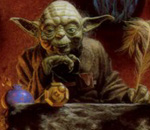
GE 345: Week 6
Renal System
|
Intro |
Pituitary |
Thyroid |
Adrenal |
Pancreas
|
Renal function
Kidney Function:
- rid body of ingested and metabolic wastes
- control volume and composition of body fluids, maintaining a stable environment necessary for cells to function properly.
- regulate water and electrolyte balances, body fluid and electrolyte concentrations, acid-base balance, waste product excretion, arterial pressure, hormone secretion and glucose synthesis.
- Glomerulus: network of glomerular capillaries. Compared to other capillary networks have high hydrostatic pressure. The capillaries are covered in epithelial cells and the network is encapsulated. Filters fluids from the blood.
- Long tubule: consists of proximal, loop of Henle (descending and ascending limbs), distal tubule, connecting tubule, cortical and medullary collecting tubules, which link into the connecting duct which merges with other connecting ducts. Converts filtered fluids into urine.
Nephrons
The kidney's functional unit is the nephron, of which there are about 1 million in each. Nephrons cannot regenerate, and their numbers decline with renal injury, disease and normal aging. Each nephron has 2 major components:
Blood enters the kidneys through the renal artery, which branches into progressively smaller arteries and arterioles before reaching glomerular capillaries, which filter fluids and solutes (except plasma proteins) to begin urine formation. Efferent arterioles lead to the peritubular capillaries, which surround the tubules, where water and specific solutes are reabsorbed back into the blood and other substances are secreted into the tubules for excretion.
Urine is stored in the bladder until the urination process relaxes the urethral sphincter which leads to the urethra, and contracts the bladder muscles.
Temporary urinary incontinence can be caused by: urinary tract infection; vaginal infection or irritation; constipation; some medicines. Long-term incontinence can be caused by: weakness in bladder or supporting musculature or urethral sphincter; overactive bladder muscles; neurologic disorders; hormone imbalance in women; blocked urethra.
Incontinence can be classified by how it manifests. Urge incontinence happens when one feels a strong need to go to the bathroom. Stress incontinence happens when one moves a certain way.
|
Intro |
Pituitary |
Thyroid |
Adrenal |
Pancreas
|
Renal function